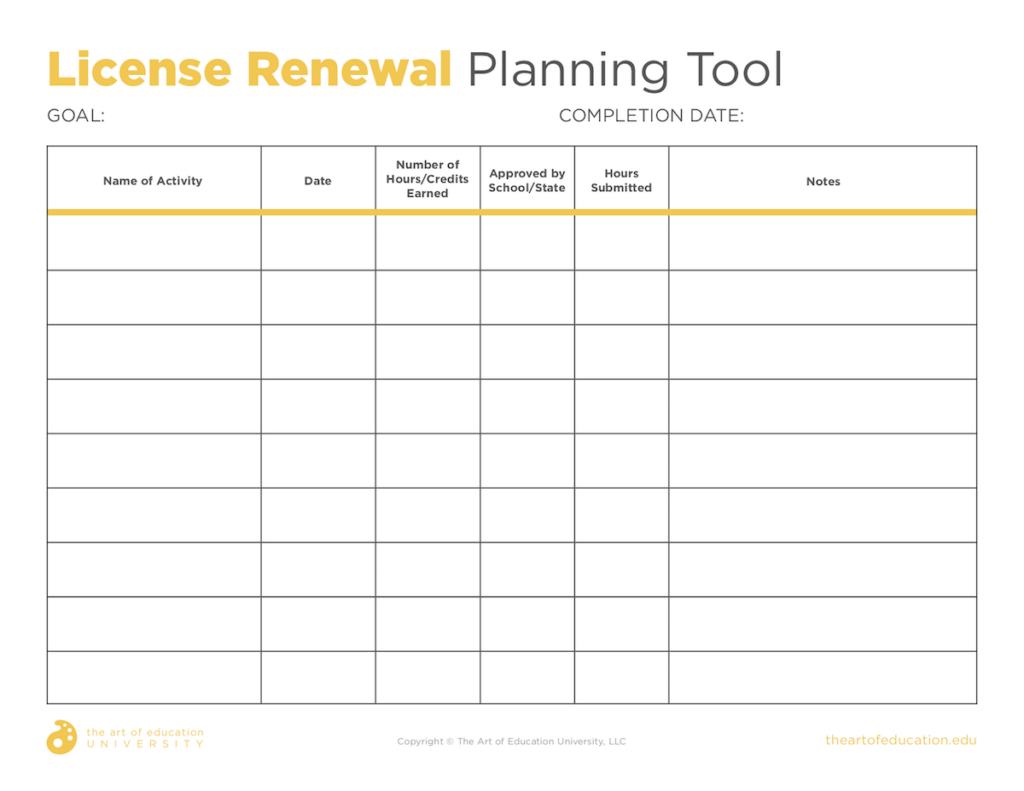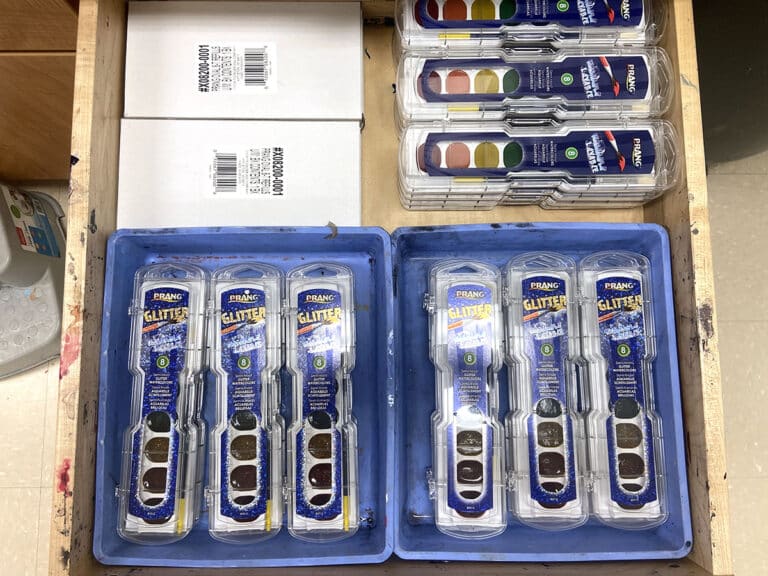After graduating and landing a teaching job, it is easy to forget you need to understand your teaching license and the steps required to keep it active. Students often get no direction on this task in their undergraduate programs, leading to misinformation or inaction. It also may not be addressed by your employer, making it easy for it to fall off your ever-growing to-do list.
Before we dive too deep into the topic of teacher licensure/certification, it’s important to understand all states have different requirements. If you’re not familiar with it already, be sure to take a look at our State Map to learn more. Using the map, you can find out if AOEU courses or PRO Learning Packs will work for your licensure needs.
Let’s look at how to understand your license and dive into resources to help you do your own research.

Getting Started
Once you have your teaching license, you need to be able to answer two key questions. The first is, do you have to renew your license? The second is, do you have to upgrade your license?
Take a look below to understand the full scope of each question.
Do you have to renew your license?
- If yes, how often do you need to renew your license?
- How many hours/credits do you need to renew your license?
- Where can you earn the credits/hours?
- Does your state specify if courses have to be from a university with a specific accreditation?
- What is the process to submit hours/credits for renewal?
Do you have to upgrade your license?
- If yes, what do you need to do to upgrade your license?
- Where can you earn the needed credits/degree to upgrade your license?
- Does your state specify the type of accreditation needed?
- What is the process to submit paperwork to upgrade your license?
There are a few states that don’t have any requirements. Once you have your license in one of these states, no additional learning is required. However, these states are the exception.
Let’s go a bit deeper into each of the above questions.
Do you have to renew your license?
Many states require teachers to complete additional learning to keep their license active. It’s often listed as a specific number of hours in a given timeframe. For example, currently, teachers in Texas can renew a standard certificate by gaining 150 CPE hours every five years. Texas teachers can renew a professional certificate by gaining 200 CPE hrs every five years. If you’re wondering how your state measures up, we’ve already done a lot of the work for you with our State Map. However, it’s incredibly important to continue to check the map, as sometimes rules change.
As you gather information about renewing your license, there are a few other things to keep in mind.
There are often exceptions for teachers who have a license but aren’t teaching or those who have a license but aren’t working in a public school system. If you fall into either category, make sure you understand what it takes to keep your license active. This may mean you need to contact your state department of education.
When speaking to your state, district, or anyone else about licensure requirements be specific in the questions you ask.
Make sure the person you’re speaking to understands what type of license you have. For example, instead of asking, “How does a teacher in my state renew their license?” you might say, “I have my initial teaching license in Pennsylvania. I’ve been teaching in the public school system for three years and am calling to find out what I need to do to make sure my license remains active.”
Research the various ways you can earn hours, and how and when you need to submit the hours.
For example, currently, teachers in New York submit hours to their state. The state has specific requirements for the information that must be provided for them to accept the hours. In cases like this, if you’ve taken courses or earn hours through AOEU, reach out to customer engagement specialists. They can help you gather the needed information.

Do you have to upgrade your license?
To keep things exciting (i.e., confusing), states use different terms. If you aren’t familiar with the term “upgrade,” your state may have different levels of licensure or an “initial license” and a “permanent license.” Some states will require you to upgrade your license, while others have it as an option that may lead to salary advancement.
License upgrades often require you to take graduate-level courses or earn an advanced degree. You’ll want to be sure you understand if this is a requirement in your state, as it’s not something you’re going to be able to complete last minute.
Start your research by looking at the state map, then head to your state department of education website to get further information.
Getting Clear on your State’s Requirements
When it comes to renewing or upgrading your license, there is often more than one way to do it.
Here is a checklist of things to look for.
- Does your state require hours, credits, or both?
- If your state requires hours, what are the conversation rates? For example, you want to be sure to understand how many hours you will earn if you take a class for credit vs. attending a conference or watching a PRO Learning Pack.
- If you’re required to earn hours, where can you earn those hours?
- If you’re required to earn credits, what kind of credits does your state accept?
Download this helpful planning tool to make sure you meet all of your state requirements.
You put a lot of time, money, and effort into earning your teaching license. Make sure it doesn’t become inactive or expire because you were unsure of your state’s requirements. Take the time to understand your license and develop a plan to keep it active. Meeting the continuing education requirements to keep your license active can be fun and rewarding if you plan ahead, find meaningful learning opportunities, and spread them out over time to avoid feeling overwhelmed.
When it comes to your teaching license, what questions do you still have?
What is your favorite way to complete your professional development hours?
Magazine articles and podcasts are opinions of professional education contributors and do not necessarily represent the position of the Art of Education University (AOEU) or its academic offerings. Contributors use terms in the way they are most often talked about in the scope of their educational experiences.






